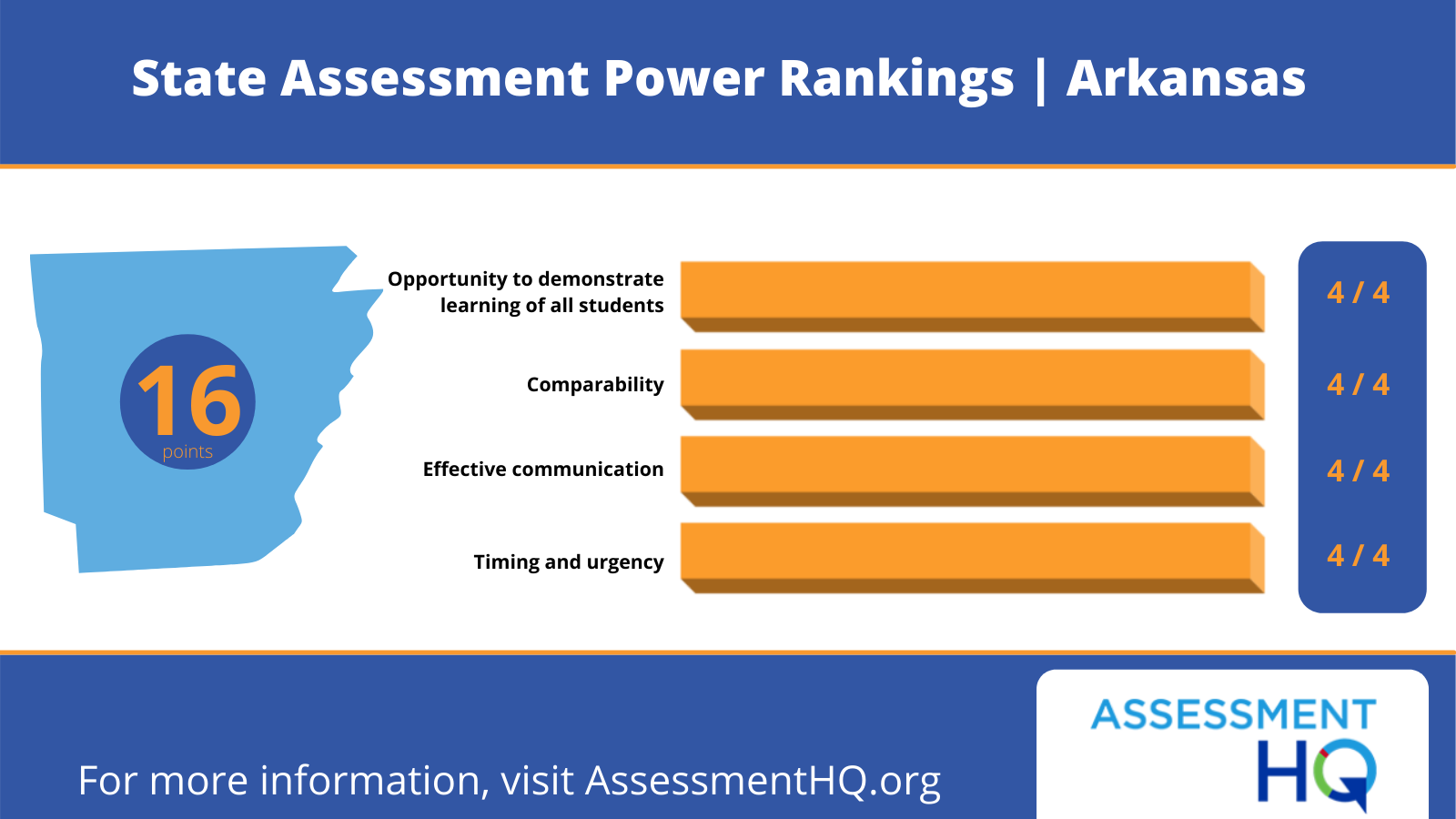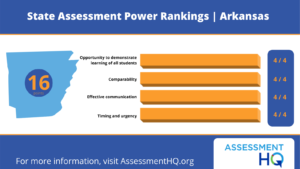
20 Apr Arkansas: Every student should test
By Dale Chu
 As some states and districts duck out of testing for a second consecutive year, it’s easy to forget that others have been resolute and standing firm. Arkansas is one such paragon, where state leaders have remained steadfast in their commitment to state testing and the concomitant understanding of Covid’s impact upon schools. To wit, a spokesperson for the state’s education agency said, “It’s important that we measure student learning. We weren’t able to test last spring, so it’s even more important that we test this school year.”
As some states and districts duck out of testing for a second consecutive year, it’s easy to forget that others have been resolute and standing firm. Arkansas is one such paragon, where state leaders have remained steadfast in their commitment to state testing and the concomitant understanding of Covid’s impact upon schools. To wit, a spokesperson for the state’s education agency said, “It’s important that we measure student learning. We weren’t able to test last spring, so it’s even more important that we test this school year.”
Before diving into the rankings, it’s worth looking at the challenges presented by the pandemic on the ground, which haven’t been easier per se in Arkansas. About twenty percent of the state’s 470,000 students have been learning remotely this year. Little Rock Central High School, the historic epicenter of the civil rights movement, has had more than half of its students online. State officials could have easily come up with any variety of mealy-mouthed excuses and asked Uncle Sam for an assessment waiver to beg off of federal testing requirements. They didn’t. On the contrary, Arkansas is expecting all students to take the state assessments, regardless of whether they’ve been in person or learning from home.
Testing started in earnest two weeks ago, and the extended window will remain open through May 21st. How has Arkansas gone about balancing safety with an insistence upon testing all students? To find out, it’s worth taking a closer look, as other jurisdictions could stand to learn a thing or two from the state’s approach. Arkansas’ assessment toolkit is particularly worth emulating (more on that below):
Opportunity to demonstrate learning of all students — Score: 4
In a press conference last January, Arkansas’ Secretary of Education Johnny Key, along with chairs of both the state’s house and education committees, underscored the state’s obligation to test all students. “The requirement for 95% testing is still in place,” Secretary Key said. “This is part of our contract with the federal government, which almost $800 million of funding to the state hinges on meeting the terms of what in essence is a contract with the federal government.”
The state’s commitment to testing all students is perhaps most clearly evident in their decision to hold off on applying for an accountability waiver. “We will look to see where we are at the end of the testing cycle,” Key said about federal accountability standards. “We have been in contact with the U.S. Department of Education and we can determine then whether we need a waiver from the federal 95% requirement.”
Comparability — Score: 4
The more students tested, the better the opportunity for having good comparable data across schools, districts, and student groups. Few expect states to meet the federal 95% participation threshold this spring, but smart money says if any state comes close, Arkansas might be it.
Effective communication — Score: 4
Arkansas stands out for its communication efforts thanks to an assessment toolkit the state’s education agency has made available to help schools and districts encourage parents to have their students take the state exams. Smartly, the toolkit emphasizes the protocols being employed to ensure a safe testing environment, which include alternative testing sites, weekend testing, and after-hours/evening opportunities. At the same time, the toolkit highlights the essential information provided by annual assessments.
All testing in the state must be done in-person. Notably, there is no process for families to ask that remote-learning students be excused. Parents with students that have high-risk health issues are being encouraged to contact schools to explore alternative testing options. The upshot being that, unlike other states, the default position in Arkansas is that students are expected to test. It’s a reasonable position in light of what we’ve learned about Covid transmission and how much remains unknown about the true extent of student learning loss.
Timing and urgency — Score: 4
State leaders in Arkansas believe in the value of state testing and the ability to safely administer them. “We are encouraging everyone—to have every parent have their student tested—whether they are in-person or remote learners,” Key said. “Allow them to come on-site, allow them to experience these alternative situations, so that they can test in a safe environment.”
By endeavoring to test each and every student, Arkansas will, to their credit, be able to have a valuable external check on the local measures school districts have used throughout the year. Taken together, the state should be better positioned to effectively deploy state and federal dollars as part of its education recovery efforts.


No Comments